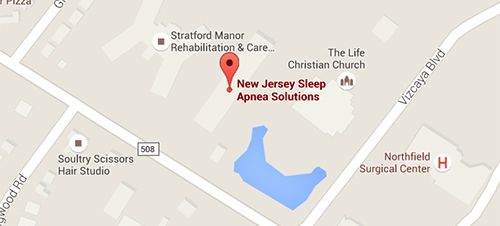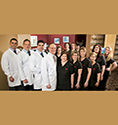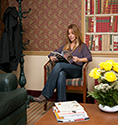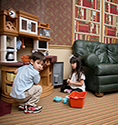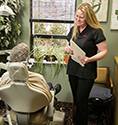How Does a Sleep Study Work?
Submitted by New Jersey Snoring Solutions on Tue 10/20/2020 - 09:00

If you suspect you may be suffering from a sleep disorder, your first instinct is probably to make an appointment with your primary care physician or a sleep doctor to talk about your symptoms. This discussion is a great starting point, but a normal office visit is not enough to definitively diagnose a sleep disorder. Your doctor needs evidence collected while you sleep to understand what happens in your brain and body. To do so, he or she may advise you to undergo a polysomnogram, more commonly known as a sleep study.
A sleep study is a non-invasive overnight test in which sleep specialists monitor your brain and body while you sleep. Sleep studies can be performed to look for signs of sleep apnea, narcolepsy, periodic limb movement disorder and other sleep disorders. The information gathered during a sleep study can help you get diagnosed and properly treated for problems affecting your sleep.
Read on as Dr. Ivan Stein of New Jersey Sleep Apnea Solutions breaks down what you need to know about sleep studies.
What to Expect During a Sleep Study
You will report to a hospital or sleep laboratory a few hours before bedtime to get ready for the study. You should bring your pajamas, personal items related to sleep and prescription medications you normally take at bedtime. If you think it will help you relax, you can also bring your own pillow.
When you arrive at the sleep study, you will be escorted to a room with a comfortable bed, television and private bathroom. A sleep technician will hook you up to equipment that monitors your breathing, oxygen level and sleep patterns. Sensors will adhere to your chest, head, face and possibly legs. A belt may be placed around your chest and abdomen and a probe around your finger. Don’t worry; the equipment may look uncomfortable, but it does not cause any pain and can be easily removed the next morning.
The room will be dark and quiet. You can read or watch television until your normal bedtime. As you sleep, the sleep technician will monitor the data coming from the sensors. If you need to use the bathroom, the technician is available to help you with the monitoring equipment.
Early the next morning, you will wake up and the technician will remove the sensors. You may be asked to answer some questions or complete a questionnaire. Once you leave the sleep center, the information gathered during the night will be interpreted and the results sent to your doctor. You will have a follow-up appointment to discuss the results and what they mean for your health.
For more information about undergoing a sleep study to confirm or rule out sleep apnea, please contact Dr. Stein and the team at New Jersey Sleep Apnea Solutions today.

